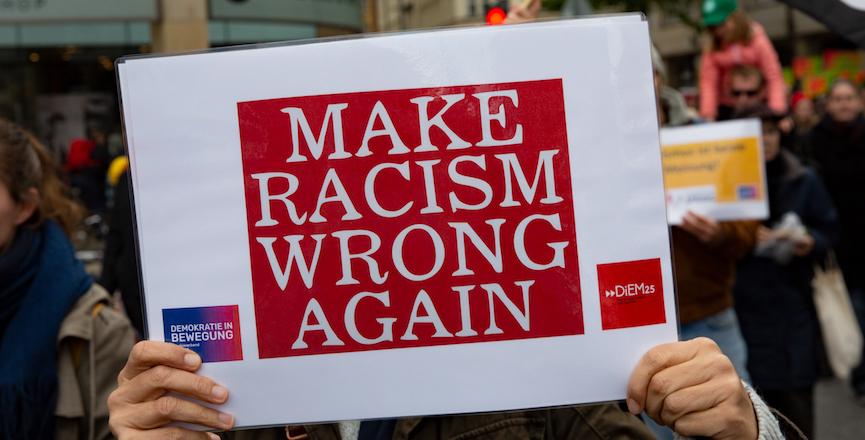Hardly a day goes by without someone warning about the dangers and evils of populism. Recently, on CBC Radio‘s As It Happens, it was a Canadian who chose to return home after the 2016 U.S. election, describing his dislike of populism in that country and of Donald Trump.
Not long before that, it was Dan Bilefsky, a New York Times reporter in Canada wrote in a feature called the “Canada Letter” about Alexandre Bissonnette’s killing six people who were praying in a mosque in Quebec City in 2017. It was a stark reminder, Bilefsky wrote, “that even Canada has a dark underbelly — that the forces of populism can percolate here, sometimes with lethal consequences.”
Let’s be clear about what is being described here. It is not populism. Donald Trump is a racist and a demagogue who, if he is not one himself, consciously appeals to fascists and white supremacists in order to further his own power and ego. Bissonnette is pathetically confused, but he is also a racist who is violently hostile to Islam and someone who reportedly was fixated on Trump’s messages.
Agrarian populism
I grew up in Saskatchewan in the era of Tommy Douglas, and I have quite a different take on populism than the CBC Radio interviewee or the reporter for The New York Times.
The Oxford English Dictionary defines a populist as someone who is “a member or adherent of a political party seeking to represent the interests of ordinary people.” That is just what Douglas and others, such as Ontario MP Agnes Macphail, were doing in the early to middling years of the 20th century. The rural community was being exploited by banks, railroads, grain buyers, and farm machinery companies, with the complicity of most politicians in the old line parties.
In 1950, the respected American academic Seymour Martin Lipsett published a classic study called Agrarian Socialism. In it he described in great detail the farm protest movement which led in 1944 to election of North America’s democratic socialist government in Saskatchewan. Lipsett wrote that it was “the social and economic position of the American wheat-belt farmer, in the United states as in Canada, [which] made him the American radical.”
Populists, including Douglas and Macphail, were engaged in movements to bring about economic and social reforms which were badly needed. They were also dedicated to winning those reforms through the ballot box. As democratic socialists they pushed the limits of liberal democracy while remaining committed to its structures and practices.
Farmers, of course, were not the only people being exploited. It was happening in mines, forests, and factories as well. In this case, too, people organized around their communal interests. Often the workplace bargaining was intense but unremarkable; at other times there were dramatic confrontations, including the Winnipeg General Strike in 1919, and the 99-day strike at the Windsor Ford Motor Company plant in 1945.
Principled and logical
Douglas, Macphail, and the others did appeal to peoples’ emotions. There was much to be emotional about during and following the Great Depression which was triggered by the excesses and corruption of the financial elite, and which visited untold hardship upon ordinary people. But Douglas and Macphail were transparent and principled, and they based their critique upon logical arguments, not fabrications and falsehoods. They were also honest people who did not use their position as leaders to enrich themselves.
They were populists but certainly not racists liked Donald Trump or Viktor Orbán, or demagogues such as Vladimir Putin or Recep Tayyip Erdogan of Turkey. The claims by each of these individuals to represent the needs and aspirations of ordinary people are shams accompanied by the use of every tool and dark art available to manipulate their respective citizens.
Today’s popular movements
There remains a need today for popular movements to challenge elites — including Canada’s 100 highest paid CEOs who, according to the Canadian Centre for Policy Alternatives, took home salaries and benefits equal to 197 times more than the average worker in 2017. The pursuit of economic and environmental justice demands research, organization, and yes, appeals to emotion. But let’s not confuse those efforts with incitements by today’s demagogues to greed, violence and racism.
Image: Rasande Tyskar/Flickr
Help make rabble sustainable. Please consider supporting our work with a monthly donation. Support rabble.ca today for as little as $1 per month!




